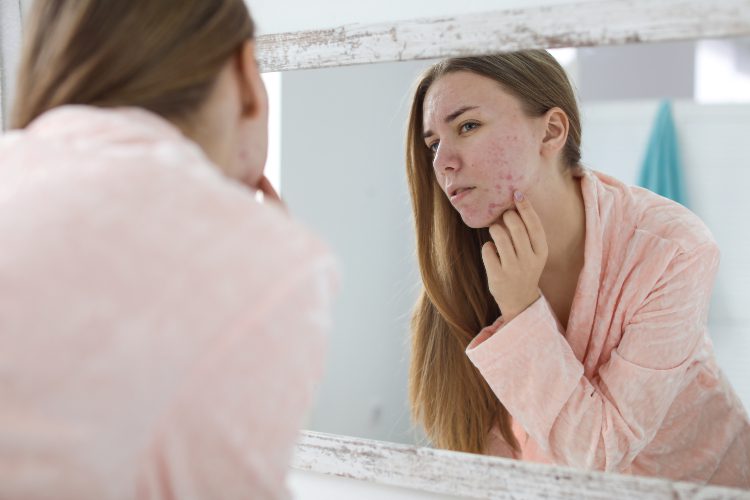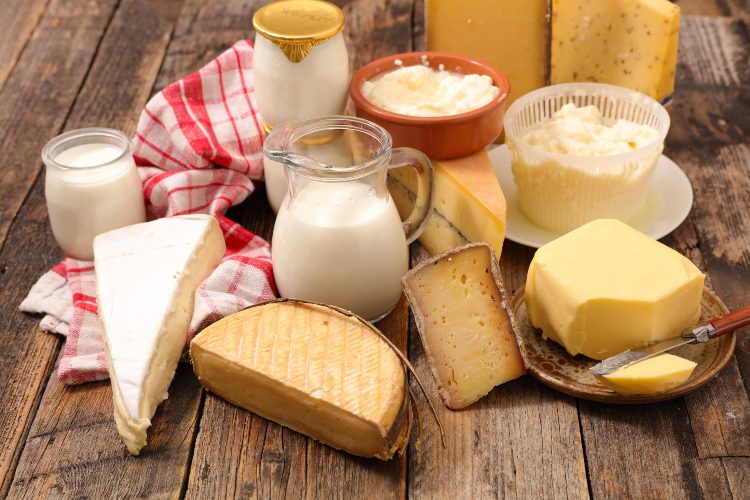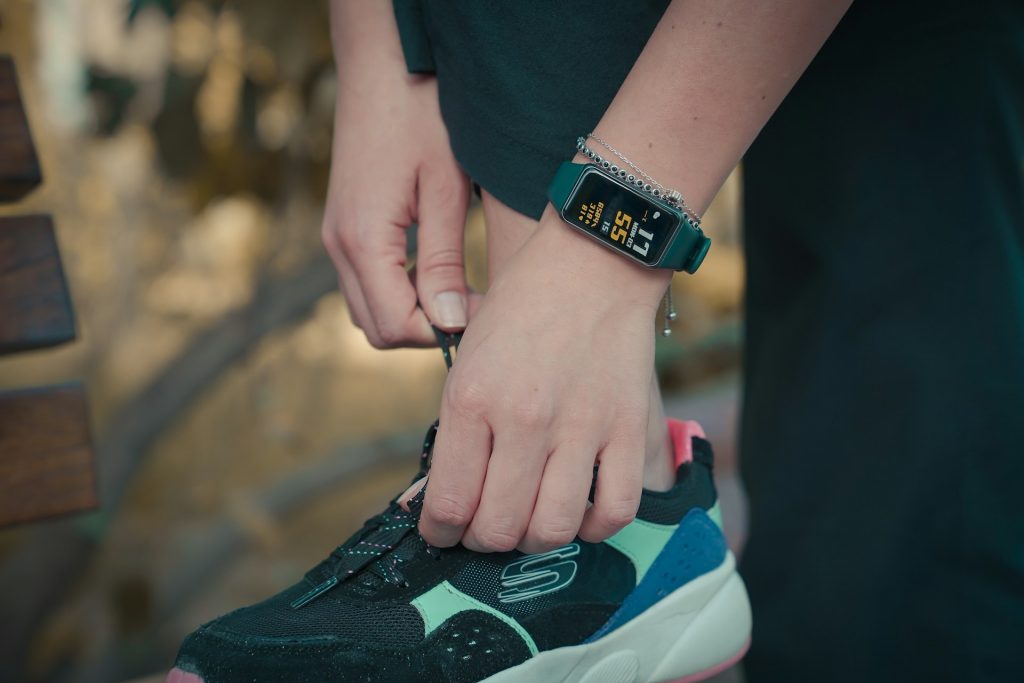
New Africa/Shutterstock
Scientists discover more and more about our bodies every single day! Now, we know that some dietary choices cause acne. So, if you have bad acne, it might be time to start thinking about a new diet. Read on to see the foods you should give up for better skin...
Dairy And Acne

margouillat photo/Shutterstock
Of course, as you might suspect, greasy foods are not good for your skin. They make you, well, greasy! However, now scientists also realize that foods that cause inflammation can make acne much worse. Most notably, consuming dairy can lead to severe acne breakouts. In fact, outside of grease and sugar, dairy is one of the worst things to consume for a clean, glowing face. According to a recent study, 85% of adolescents who experienced bad acne also reported high consumption levels of milk and cheese.
"Studies show that dairy can raise insulin levels, which increases the production of the hormones that produce sebum (an oily secretion), which may influence acne," said Isabel Smith, MS, RD, CDN, founder of Isabel Smith Nutrition. "I don't see this in all of my clients, but many find that more dairy consumption increases breakouts." If you find yourself frequently breaking out, trying cutting down your sugar and dairy consumption. "If you find you're having trouble figuring out whether dairy or sugar (or something else) is a problem, try cutting back or cutting it all the way out and see if it improves," Smith explained. "It's the easiest and cheapest way to test."
And there are plenty of other reasons to keep diet out of your diet...
Avoid Milk and Cheese For Better Skin

Artem Oleshko/Shutterstock
As stated, less dairy can also mean less acne. However, dermatologist Whitney Bowe, M.D., from New York, believes everyone should cut back on dairy. Not only can it cause acne, but as it causes systemic inflammation, it also leads to headaches, lower immunity, digestive distress, memory problems, and so on. And all the great nutrients in milk can be found in other foods. For calcium, you can turn to leafy greens, dried peas, beans, fish, and more. Meanwhile, these days, there are more and more non-dairy replacements, including non-dairy milk, yogurts, ice creams, and cheeses, which include many of the same nutrients as their dairy-heavy counterparts.
Simply cannot give up milk and dairy products entirely? Well, there are ways to minimize the harmful inflammation effects. First, choose milk from grass-fed cows. Second, try replacing some of the dairy in your diet. Even if you can't make the switch to vegan cheese - and we don't blame you - try swapping out the half-and-half in your coffee for cashew milk or something similar. This will also help cut down on your sugar consumption!
Sources: Healthline, MSN, Vogue.



